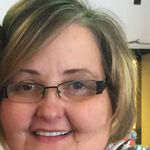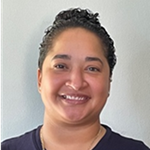Agenda
- Yoga
Jelitza Motta - Breakfast
- Conference Opening Remarks
- Keynote Speaker
Ken E. Nwadike, Jr. - Morning Break
- Breakout Sessions
- Lunch
- Breakout Sessions
- Afternoon Break
- Breakout Sessions
- Yoga
Jelitza Motta - Breakfast
- Opening Remarks
- Keynote Speaker
Ben HartranftBen Hartranft is a 26-year-old young man who was diagnosed with Autism at the age of 2. At that time, he knew only 20 words and everything was a safety issue. Ben has exceeded all expectations and is strengthened by his faith in God and the people He has placed in Ben’s life. He received his diploma, works part-time for Philadelphia Eagles Game Day Staff, earned his driver’s license and treats everyone he meets like a rock star.
- Morning Break
- Breakout Sessions
- Lunch
- Keynote Speaker
Carl J. Sheperis, PhD - Afternoon Break
- Breakout Sessions
- Yoga
Jelitza Motta - Breakfast
- Opening Remarks
- Keynote Speaker
Christian Ragland - Morning Break
- Breakout Sessions
- The Heart of Influence: Unleashing Servant Leadership in All of Us
Megan Richard•Terri Salata•Janine Sejuit-Gnall•Shannon Napoli•Lisa Alcaro•Kaitlyn XanthopoulosA culture of servant leadership is fundamental to the success of all organizations. This workshop explores the core principles and benefits of servant leadership and highlights strategies for embracing it into your culture.
By embracing servant leadership, organizations and their stakeholders can thrive.Megan Richard
supervisor at Service access and management
Terri Salata
Director of Administrative Entity Support Services at Service Access and Management, Inc.
Janine Sejuit-Gnall
Director of Budgets and Grant Management at Service Access & Management, Inc.
Shannon Napoli
Manager at Service Access and Management Inc.
Lisa Alcaro
Regional Manager for Supports Coordination Services at Service Access and Management
Kaitlyn Xanthopoulos
Assistant Housing Coordinator at Service Access & Management
- Getting Directions to Home! A Roadmap for Successful Care Transitions
Ruth Kurtz•Stephanie LawsonCare transitions from the hospital to home can be difficult to navigate especially for individuals with serious or chronic mental and behavioral health issues. These transitions often fail and require readmission to a more restrictive care setting. This workshop provides a comprehensive roadmap for facilitating successful transitions. From understanding the unique challenges faced by individuals with mental health concerns to identifying the support systems necessary for successful reintegration into the community, this workshop highlights the tools and insights needed to successfully guide individuals on their journey home and ensure long-term, community tenure.
- A Case Management Experience 1980 – 2024
Dave WilkinsonPresentation of my experience in the practice of case Management over the past forty-four years - a retrospective review of the profession of case management. I will provide a look back and a look forward and discuss changes in approaches, as well as the nuances in language within the case management arena. There are valuable skills that have been consistent over time which, case managers professionally provide, to individuals and families. There are many lessons learned in our opportunity to work with vulnerable populations.
- Mental Health Peer Support for Persons Served: Exploring Case Managers’ Utilization
John Vafeas•Alice FischerThis session will be an interactive workshop exploring case managers’ experience with referring and collaborating with peer support groups in the community. Participants will benefit from the sharing of experiences of their colleagues and exchange innovating ideas around supporting persons served with mental health issues. Professionals from Pennsylvania are particularly encouraged to attend this session. Community resource systems supporting people with mental illness will be shared. The final outcome of this workshop will be a summary of ideas shared during the session that will be disseminated via email following the conference to all participants.
- Case Management Problem-Solving/Decision-Making Process
Ervin MunroThis presentation is designed for behavioral and medical healthcare providers who serve clients/patients with a wide range of conditions and needs, and often expect to get quick results. By learning a few basic techniques, participants will be able to efficiently and effectively guide persons through a process leading to realistic goals and results.
- Six Strategies for Writing a Strengths-Based Service Plan
Kelly Boyer•Jaclyn WolfeThis workshop explores a strengths-based approach to writing service plans. Attendees will have a deeper understanding of the concept of a strengths-based approach and how it applies to writing quality service plans. Through discussion and group activities, participants will be able to take with them some fresh ideas and questions to use when writing service plans.
- Building Resilience: Strategies for Preventing and Managing Compassion Fatigue in Case Management
Rebekah HurstCompassion fatigue is real. Social workers, case managers, and the helping profession in general is at a high risk of experiencing compassion fatigue due to the role they play in providing empathetic support to others who are suffering and experiencing trauma. This workshop provides participants with the skills and knowledge to empower themselves and those they work with, to combat compassion fatigue and to work towards resilience. This workshop proposes the importance of preventative education and importance of training for practitioners to address the risks and symptoms of compassion fatigue and to learn the benefits of compassion satisfaction and self-care and how this can contribute to the well-being of the clients that are served.
- Revisiting Rational Approaches to "Harm Reductions" and "Housing First"; Is there Practical Middle Ground?
James Peightel“Harm Reduction” and “Housing First” philosophy and policy have transformed approaches to substance use and homelessness. Early hopeful predictions of stability, safety, and cost-savings have been hard to obtain and have led to pockets of backlash.
A Certified Recovery Specialist and Community Psychiatrist, colleagues at a novel Philadelphia treatment site, will facilitate a lively discussion on these topics and related hybrid approaches
- Case Management Problem-Solving Decision-Making Process
Ervin MunroThis presentation is designed for behavioral and medical healthcare providers who serve clients/patients with a wide range of conditions and needs, and often expect to get quick results. By learning a few basic techniques, participants will be able to efficiently and effectively guide persons through a process leading to realistic goals and results.
- Developing Positive and Healthy Relationships
Maria GonzalezThis presentation is designed for Case Managers, Service Coordinators, and other service providers. The focus is to develop and enhance positive, healthy, and professional working relationships with clients as well as clinicians and supervisors. Participants will learn techniques to effectively engage clients with dignity, regard, respect, and equality.
- Co-Occurring Gambling and Traumatic Exposure
Craig StricklandGiven prevalence rates, it is important to study PTSD and to try and understand why some individuals will develop the diagnosis and other do not. Furthermore, the rate of co-occuring addiction for people with a history of traumatic exposure is very high. This workshop will look at applying neuroscience to understand why traumatic exposure and gambling addiction co-occur.
- Moving Hearts not Humans: Supporting Survivors of Human Trafficking and Trauma
Nicole Lorenzetti•Rebekka MatthewsHuman trafficking is the illegal trade in human beings through recruitment or abduction by means of force, fraud or coercion for the purpose of forced labor, debt bondage or sexual exploitation. This presentation will focus on recognizing possible indictors with a scenario based presentation while diving into how to have difficult conversations or screen for possible risk of human trafficking. Training will additionally explore ways of positively implementing practices and strategies to support those working with survivors or in the community.
- Social Drivers of Health in Immigrant Populations: Addressing the Needs of Mexican and Central American Families and their Children
Edith Lopez•Alondra GarzaPresenters will share their experiences leading the implementation of Children’s Crisis Treatment Center’s Abriendo Caminos program. Services support children and their families living in the Philadelphia area who have recently emigrated from Mexico or Central America and are struggling with associated acculturation issues as well as behavioral health challenges. The program aims to identify needs and connect families to community resources including behavioral health, physical health, and social services as well as strengthen caregivers’ ability to navigate various systems.

Edith Lopez
Division Director of Community Based Servcies at Children's Crisis Treatment Center- AG
Alondra Garza
Team Leader of Abriendo Caminos and TAMAA at Children's Crisis Treatment Center
- Motivational Interviewing: The Art of Engaging and Support Individuals
Nicole Lorenzetti•Veronica Pilon•Rebekka MatthewsParticipants will develop knowledge in collaborative conversation for strengthening a person’s own motivation and commitment to change. Review of the 5 core skills of engagement are discussed along with non-verbal communication tactics, assumptions to avoid of others, identifying motivating factors in individuals, assessing a person’s readiness for change, and applying the concepts of motivational interviewing in facilitating change.
- Dr. Pat Deegan's Hearing Distressing Voices Simulation
Jill Beveridge, M.Ed.•Dylan Black•Jasie Hassinger•Veronica PilonThe “Hearing Distressing Voices” Simulation was created by Dr. Patricia E. Deegan. Using her own personal experience hearing distressing voices, and her recovery journey, Dr. Deegan has developed this simulation to help build empathy and understanding. This simulation helps participants to connect to the strength and resilience of those who experience distressing voices, while developing a better understanding of the challenges faced. Throughout this simulation, participants will experience a variety of workstations and tasks that need to be completed while experiencing hearing distressing voices. Participants will have the opportunity to share their experiences and take aways from the simulation during a debriefing discussion at the end of the simulation.
- How Does an Emotion Wheel Work? Tirelessly.
Alice Fischer•Janice GaskerEmotions can make or break the helping process. A worker’s understanding of emotional intelligence for themselves and for their interactions with clients is invaluable. This interactive presentation will help participants understand the role of emotions in helping and the clinical use of an emotion wheel in all levels of practice.
- Introduction to Wraparound Services
Janet BrummettMany states are working to improve access to behavioral and mental health services for youth and families. A priority in reaching this goal is expanding the use of evidence-based practices to provide behavioral/mental health services. The Wraparound Program is an evidenced-based practice that can help meet that goal.
- JB
Janet Brummett
Wraparound Program Manager at Indiana ProfessionaI Management Group/IPMG
- JB
- Autism Support in Higher Education
Mary Rita WellerThis presentation is designed to support professionals and families of young adults with autism that are considering attending college/university. Needs related to socialization tend to be least addressed. Participants will be able to identify resources that can further assist students with autism in developing and maintaining peer relationships.
- The Positive Power of Social Media on Teens’ Mental Health
Catriona Billet•Kelli FlinnSocial media is a natural part of life for adolescents and an important part of their development. Most of what you hear of social media and adolescents gives an impression that it increases suicidality in the population. However, research has shown that social media can serve as not only an outlet and respite for adolescents, but can also decrease self harm and suicidal ideation among the same group. With the rise of new social media (such as TikTok) there has also been a rise of increased awareness of mental health issues which has led to more positive influences in this area. Since the COVID-19 pandemic we have seen an increase in personal apps for mental health and the tech world is making these apps more appealing to the younger populations. Apps such as Calm, HarmLess, Calm Harm, and Headspace are becoming more well known to the adolescent population. In conclusion, social media allows connection with peers, gives adolescents the ability to share online and offline experiences, allows for exploration of their identity, and ultimately used as a coping skill to decrease suicidal ideation in adolescents worldwide.
- Ethics for Case Managers: Staying current with the times
- Keynote Forum
Ben Hartranft - Keynote Forum
Carl J. Sheperis, PhD
- Keynote Forum
Christian Ragland
- Community Crisis Systems Development for People with Behavioral Health Disorders
Judith Cook•Sam ShoreThe Crisis Now model is being implemented across the country and is diverting people with behavioral health crises from emergency departments and jails. Learn about the model and how communities are implementing it in line with the National Guidelines for Crisis Care and the Roadmap to the Ideal Crisis system.
- Ethnoracial Issues and Psychopharmacology
Craig StricklandGroup research is psychopharmacology tends to focus on differences associated with age and gender. Surprisingly, little research has focused on different ethnoracial groups. This presentation will look at differences in how medications are absorbed, distributed and metabolized across groups. In addition, there are differences in how ethnoracial groups view the value of psychotropic medication including medication adherence, another area to be discussed within this workshop.
- Navigating Challenges: Advancing DEI&A Initiatives for a Stronger Workplace
Jelitza Motta•Megan Richard•Rebekah SuperDive into 'Peanut Butter and Jelly: Awareness of Unconscious Biases', a dynamic session unveiling the impact of unconscious bias on decision-making, team dynamics, and organizational culture. Explore common biases, myths, common phrases, learn mitigation techniques, and empower leaders to foster a bias-aware environment, driving inclusivity in every interaction.
- Ken Nwadike (keynote follow-up) discussion
Ken E. Nwadike, Jr.
- Stress Management and Self-Care for Case Managers • 2024
Dennis FisherThis interactive workshop will begin by exploring the daily sources of stress in a case manager’s life. Participants will experience and discuss several self-care methods to manage and even avoid stress and/or burnout. On-the-spot techniques for identifying and managing routine stress will be offered. The workshop will conclude with a guided imagery and progressive relaxation exercise.
- Field Worker Safety Training (Scenario-Based Learning)
Sandi Bellis•Ron Frederick•Caroline WeberThis program will provide guidance to participants and enhance awareness and assessment skills necessary for casework in the field. The purpose of this training is to identify potential dangers and minimize risk to the personal safety for both participants as well as their clients in the community.
- Fieldworker Safety Training (Scenario-Based Learning)
Ron Frederick•Sandi Bellis•Caroline WeberThis program will provide guidance to participants and enhance awareness and assessment skills necessary for casework in the field. The purpose of this training is to identify potential dangers and minimize risk to the personal safety for both participants as well as their clients in the community.
- Let's Get to Work. It's Lifestoryti.me
Norman Yuson CuanoFacilitate dementia-specific advance care planning education with AI-assisted coursework. Start the conversation with the Life-planning in Early Alzheimer’s Dementia Guide on a digital community platform. Join Lifestoryti.me and test how to adopt design thinking and adapt goal-concordant care, co-create caregiving and personalize end of life experiences throughout the dementia journey.
- Using Wellness Recovery Action Plan with Older Adults: WRAP for Healthy Aging
Judith Cook•Sam ShoreWellness Recovery Action Plan is an evidence-based self-management intervention that helps people identify strategies that promote physical and emotional health. Learn about a version that helps older adults feel less isolated and more in control using a simple plan for responding to stress, negative thoughts, and challenging times.
- Unlocking Potential: Skill Based Hiring and Development in Case Management
Rachel Bernini, DSW, LSWLearn how skills based-based hiring revolutionizes case management. Explore strategies to identify, assess, and develop essential competencies in newly employe case managers. Discover practical tips for implementing skills-based hiring, fostering team collaboration, and enhancing client outcomes in a 60-minute interactive session.
- Driving Innovation with IDEAS
Shawn WunderThis workshop will provide attendees with the tools to transform their workplace culture by harnessing staff ideas and collaboration to drive organizational innovation. Attendees will explore the structures, planning, methodology, and technology used to drive engagement with innovation programs and understand how to harness the results for ongoing and lasting change.
- Remote Onboarding: Challenges, Opportunities and Strategies
Dylan Black•Daniel TiceSuccessfully training staff in remote environments requires strategies that promote engagement and focus on learners. This presentation reviews the use of technology, team building, and strategies for working with different types of learners. Even remotely managed programs can improve staff retention and long-term engagement by implementing a robust onboarding program.
- Leaders of Tomorrow
Ashley Binkley•Colleen Vera•Ruth KurtzMentorship provides a connection between novice employees, employees who could benefit from re-honing their skills, and master-skilled staff. Mentoring opens a mutually beneficial pathway for continued growth and personal development. It is a reciprocal journey in identifying obstacles and implementing practical resolutions. In turn, mentorship helps solidify employee connection, support understanding of case management roles, and increase staff retention.
- Inter-professional Social Work in Primary Care Settings
FangHsun WeiSocial workers are important in primary care settings but face many barriers to interprofessional collaborations. This study used the systematic review method to identify the competencies and skills needed in interprofessional social work education. This presentation included a discussion of the CSWE interprofessional social work education requirements.
- Transitions of Care: Building a Successful Model
Lauren CookeAtlantiCare Health System will share how they successfully built a model of care supporting Transitions via RN Care Managers. The specialized focus will highlight the impact to improving quality of care and reducing hospital admissions. AtlantiCare’s Health Network has a strong foundation in Population Health and has built up their care management program to serve clients/community across the entire continuum of care.
- "The Gray Area" Utilization of a Behavioral Health Care Manager
Carlique Copeland•Colleen Hauck"THE GRAY AREA” is defined as an area or situation which is difficult to judge what is right and what is wrong. This workshop will bring awareness to what we like to call “The Gray Area” and to promote change to improve our processes with an addition of a Behavioral Health Care Manager. What is our common denominator? Improving mental health care
- Restorative Practices with Families
Lydia DeBiaseThis workshop with look at the history of restorative practices in the justice systems and schools. It will also look at the five principles of restorative practices; relationships, respect, responsibility, repair, and reintegration. Participants will learn about the six steps of a restorative conversation to include opening the lines of communication, allowing individuals to explain the situation from their perspective, identify what led up to the incident, identify the impact, and identify needs and repair harm. Lastly, it will look at how to take these principles and integrate them into practice with families.
- Supporting Families of Young Children through Strength Based Coaching
Jenna Russell•Kristen ZaryParents are their child’s first teacher; however, parent-child relationships do not come naturally for every parent. A study at Harvard University shows that a loving parental relationship is the strongest predictor of a child’s future success. During our presentation we will discuss different types of interactions and factors that can impact parent-child interactions and how professionals can help facilitate these interactions through coaching. This presentation will focus primarily on strategies for infants, toddlers, and preschoolers; however, the strategies presented can be tailored towards older children as well.
- The Adventure Challenge Experience (ACE) Program
Ed Borsheim•Nicholas Grinnell•Curtis Stanley•Malachi CunninghamJoin us in breaking the ice with some fun and challenging group activities, then take a tour of our Adventure Challenge Experience (ACE) program for at-risk youth! From dirt bikes and ropes course challenges to golf clubs and hiking boots, discover how this incentive-based behavior modification program benefits our youth.



















































